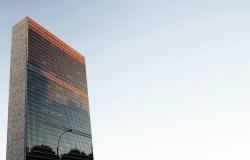“Recommit to Multilateralism”: What to Expect from the Summit of the Future

The upcoming Summit of the Future is an opportunity for UN member states to examine the state of global cooperation, says expert Eugene Chen. Here's why that matters.
The UN Summit of the Future is coming up at the end of this week. What are its goals and what makes it unique?
.png) On September 22-23, heads of state and government will gather in New York for the Summit of the Future, which will open the high-level week of the 79th session of the UN General Assembly. The Summit has its origins in the 2021 report Our Common Agenda by UN Secretary-General António Guterres: it emphasises that today’s most pressing challenges can only be addressed through international cooperation. In the report – which was issued after the UN’s 75th anniversary, as the world emerged from the COVID-19 pandemic – the Secretary-General proposed the Summit as an opportunity for countries to “forge a new global consensus on what our future should look like, and what we can do today to secure it.”
On September 22-23, heads of state and government will gather in New York for the Summit of the Future, which will open the high-level week of the 79th session of the UN General Assembly. The Summit has its origins in the 2021 report Our Common Agenda by UN Secretary-General António Guterres: it emphasises that today’s most pressing challenges can only be addressed through international cooperation. In the report – which was issued after the UN’s 75th anniversary, as the world emerged from the COVID-19 pandemic – the Secretary-General proposed the Summit as an opportunity for countries to “forge a new global consensus on what our future should look like, and what we can do today to secure it.”
Typically, UN member states individually consider each of the wide-ranging issues addressed at the assembly, negotiating resolutions for each agenda item. The Summit, however, provides an opportunity for member states to examine their cooperation more broadly, including on areas of intersection and overlap between issues that would normally be negotiated by different delegates in different committees under different agenda items.
The centrepiece of the Summit will be the adoption of a Pact for the Future by the General Assembly, which covers five key areas:
- Sustainable development;
- International peace and security;
- Science, technology, and innovation;
- Youth and future generations; and
- Global governance.
The Pact will also include a Global Digital Compact and a Declaration on Future Generations as annexes.
The Summit comes at a time that is defined by increasing conflict and distrust among nations. What could its potential implications look like for these ongoing crises?
In theory, negotiations on the Pact for the Future ahead of the Summit could help UN member states to strengthen their commitment to multilateralism and re-energise efforts to collectively address global challenges. The reality, however, is shaping up to be far more pessimistic.
In the years since the Secretary-General’s call for the Summit of the Future, Russia’s invasion of Ukraine and the war in Gaza have only increased divides between developed and developing countries and exacerbated the state of geostrategic contestation. These developments have made the Secretary-General’s call for the Summit a high-risk gamble. The resulting atmosphere of mistrust at the UN makes an ambitious Pact for the Future increasingly unlikely. In fact, as of the time of this writing, agreement on several issues within the Pact such as financing for development, nuclear disarmament, and the governance of emerging technologies like artificial intelligence (AI) remains elusive.
At the same time, some areas with broad UN member support can help to mitigate future crises. Member states generally agree on the need to review UN peace operations—including political and peacekeeping missions—and to develop recommendations for adapting the UN toolbox to meet evolving needs and allow for more agile, tailored responses to existing, emerging and future challenges. Plus, UN member states broadly agree with the Secretary-General’s push to prioritise prevention, including on implementing and strengthening national prevention strategies. Finding common ground on these points could build bridges for UN members to cooperate on other issues, too.
Over the coming years, member states will have the chance to build on the momentum generated by the Pact for the Future through processes such as the 2025 Peacebuilding Architecture Review, the 2026 Review of the UN Counter-Terrorism Strategy, and via the policy agenda of the next Secretary-General, who takes office in 2027. Making more concrete progress on these issues, however, will require a long-term outlook towards multilateral action.
Why are these debates important for Europe?
As both the world and global challenges change, the UN itself must also adapt to ensure that it can continue to fulfil the lofty purposes and principles outlined in its Charter. On this front, the Summit of the Future is an opportunity for countries to recommit to multilateralism and consider what is necessary to strengthen the multilateral system.
The UN provides a means for burden-sharing to address some of the most pressing challenges of our time. And while the European Union and its member states are major contributors to the UN’s work in the areas of peace and security, development, and humanitarian assistance, their total contributions account for less than a third of the financing of the UN system. Through the UN, Europe can have a greater impact than if it were to act alone.
Europe is also a pioneer in emerging areas of global governance, such as regulating AI. But it isn’t enough for European countries to develop regulations and mechanisms for cooperation among themselves; today’s interconnected world means that Europe is affected by decisions and developments elsewhere in the world. And the reverse is also true. The UN provides a ready‑made platform through which its member states can address these new and emerging areas that require international cooperation, as well as to examine new dimensions of longstanding issues that were unfathomable when the UN was established nearly eighty years ago. Making use of this potential will be the task of the Summit of the Future – and the decades to come.
Eugene Chen is a Senior Fellow at New York University’s Center on International Cooperation (CIC). An expert on international public administration, his research focuses on the interplay of substantive policy, intergovernmental politics, and bureaucratic processes at the United Nations.
This first appeared on the ENSURED website.
Photo credit: Daryan Shamkhali / Unsplash


